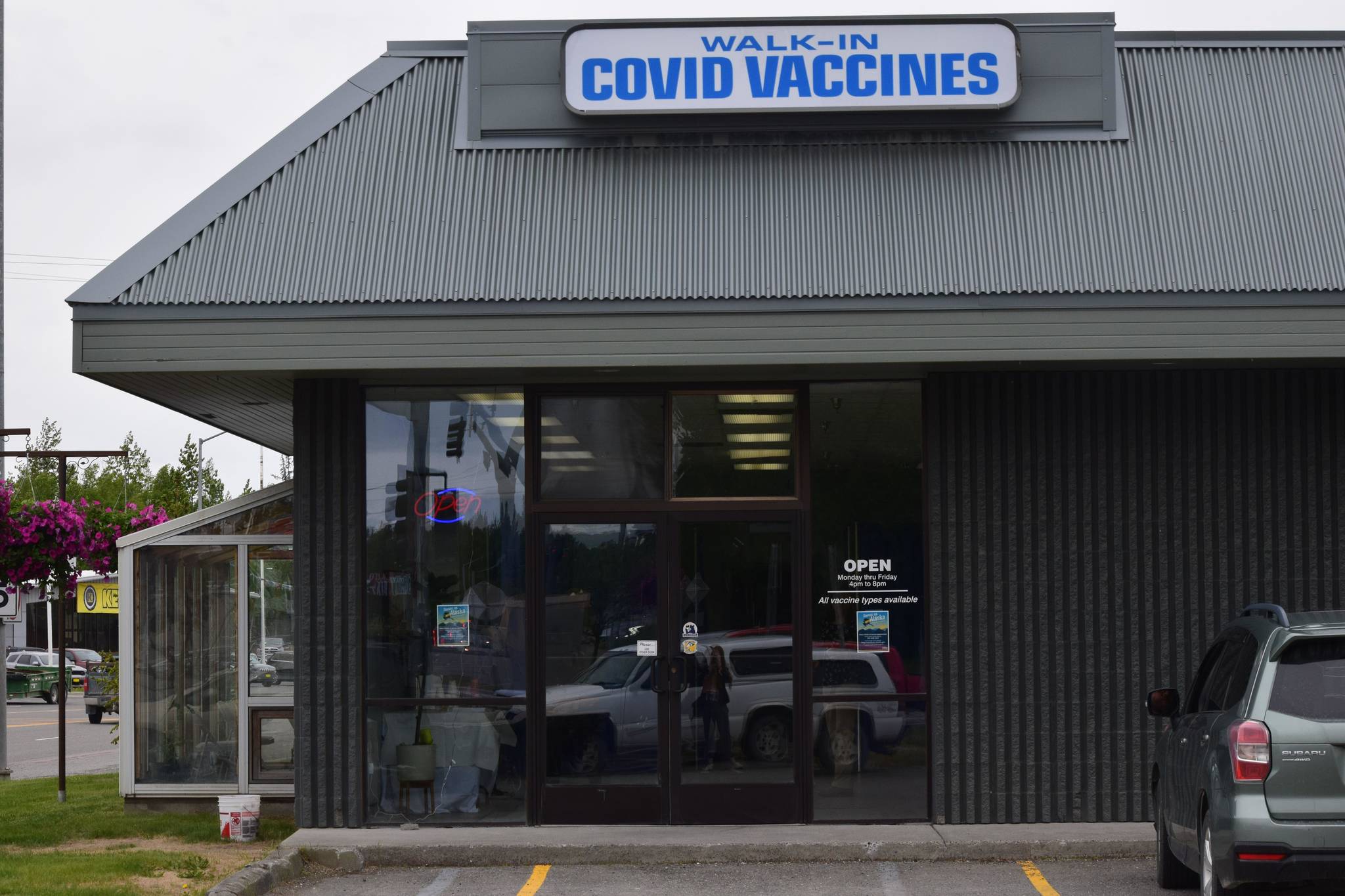The delta variant of the coronavirus now accounts for over 90% of the new COVID-19 cases being sampled in Alaska, officials with the Department of Health and Social Services said in a press briefing on Thursday.
The delta strain has been labeled a “variant of concern” by the Centers for Disease Control and Prevention, and is a mutation of the original virus that emerged from Wuhan, China in late 2019.
Dr. Coleman Cutchins, a clinical pharmacist with the state, said Thursday to think of a virus mutation like a handwriting transcription.
“So basically, anytime a virus replicates and creates a new virus, it’s sort of like if you had a letter, and then you’re going to hand write it again on another piece of paper,” Cutchins said. “With some viruses, it’s like a scanner, so you get a perfect copy. But with these coronaviruses, it’s kind of like if you handed a letter to a kindergartner and told them to transcribe it over.”
Dr. Lisa Rabinowitz, a staff physician with the state, said while the COVID virus continues to mutate all the time, it’s important to remember that some changes to the virus don’t actually help it thrive.
“Sometimes they’re less advantageous for the virus,” Rabinowitz said about different mutations. “And sometimes they are more advantageous in terms of increasing transmissibility, which is what we’re seeing with the delta virus.”
As of Wednesday, there were a total of 429 delta variant cases reported across the state. With its increased transmissibility — which is about double the original COVID-19 strain — data suggests that on average, one person with the delta variant will infect between five and eight other people.
That’s compared to the regular flu, in which a single person would infect one other, and even the original COVID virus, in which one person would contaminate around 2.5 other people.
According to state data, the Kenai Peninsula Borough is in the high risk category for COVID transmission. The Centers for Disease Control and Prevention now recommends both vaccinated and unvaccinated people wear masks in indoor public settings.
Dr. Anne Zink, the chief medical officer with the state, said COVID-19 vaccines are the key to fighting the delta strain.
“Again, vaccines are our fastest way out of this pandemic,” she said. “It really helps to minimize severe symptoms, hospitalization and death.”
She said a fully vaccinated person’s chances of catching the virus decrease by about eight fold, and the chances of hospitalization and death decrease by five fold.
State Epidemiologist Joe McLaughlin said in a prior press briefing that the vaccine data still shows protection against the delta variant. Researchers estimate people vaccinated with the Pfizer-BioNTech and Moderna shots have around a 12% chance of testing positive for the delta strain, while those with Johnson & Johnson/Janssen have around a 33% chance. As of Thursday, 52.6% of Alaskans 12 and older were fully vaccinated against COVID-19. In the Kenai Peninsula Borough, the percentage of fully vaccinated people remained below the statewide average, at 44.7%.
“We often are comparing this surge with what we all went through last fall,” Rabinowitz said Thursday. “And I think we’re in a better position, as we have higher rates of vaccination in our community. So, again, I’m hoping that part of this is being blunted by our vaccine rates and just wanting to encourage people to continue getting vaccinated.”
On Wednesday, Alaska Gov. Mike Dunleavy publicly encouraged Alaskans to make a plan to get their shots to help keep the state open safely. He praised former President Donald Trump’s Operation Warp Speed vaccine development, saying the vaccines are safe, free and widely available all across the state.
Reach reporter Camille Botello at camille.botello@peninsulaclarion.com.


